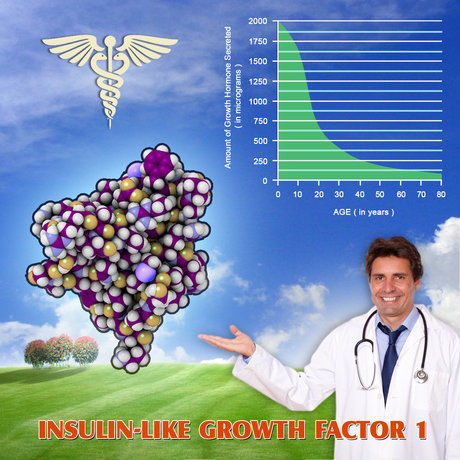Introduction
Testosterone propionate, a synthetic variant of the naturally occurring hormone testosterone, is commonly used among American males for various medical and non-medical purposes, including hormone replacement therapy and bodybuilding. While its benefits on muscle growth and libido are well-documented, the impact of testosterone propionate on liver health remains a topic of significant concern and interest. This article delves into the effects of testosterone propionate on liver function in American men, providing a comprehensive overview of current research and clinical insights.
Understanding Testosterone Propionate
Testosterone propionate is an injectable form of testosterone that has a short half-life, necessitating frequent administration. It is favored for its rapid onset of action and is often used to increase muscle mass, strength, and overall physical performance. However, the use of any anabolic steroid, including testosterone propionate, carries potential health risks, particularly concerning liver health.
Liver Health and Anabolic Steroids
The liver plays a crucial role in metabolizing drugs and hormones, including anabolic steroids. The liver's function can be compromised by the prolonged use of such substances, leading to various hepatic disorders. Hepatotoxicity, or liver toxicity, is a known risk associated with the use of oral anabolic steroids, but the impact of injectable steroids like testosterone propionate is less clear and warrants further exploration.
Research on Testosterone Propionate and Liver Health
Several studies have investigated the effects of testosterone propionate on liver function. A study published in the *Journal of Clinical Endocrinology & Metabolism* found that while oral anabolic steroids are more likely to cause liver damage, injectable forms like testosterone propionate showed less severe impacts on liver enzymes. However, the study also noted that long-term use could still pose risks to liver health, emphasizing the need for regular monitoring.
Another research article from the *American Journal of Medicine* highlighted that while testosterone propionate does not typically lead to the severe liver damage seen with oral steroids, it can still contribute to elevated liver enzyme levels in some users. This suggests that while the risk may be lower, it is not entirely absent.
Clinical Observations and Recommendations
Clinicians often observe that patients using testosterone propionate may experience mild to moderate elevations in liver enzymes, such as alanine aminotransferase (ALT) and aspartate aminotransferase (AST). These elevations are generally reversible upon cessation of the drug. However, continuous monitoring of liver function through regular blood tests is recommended for individuals on long-term testosterone propionate therapy.
Experts suggest that American males considering testosterone propionate should be aware of these potential risks and engage in open discussions with their healthcare providers. It is crucial to weigh the benefits against the potential adverse effects on liver health and to consider alternative treatments if necessary.
Mitigating Risks
To mitigate the risks associated with testosterone propionate, users should adhere to prescribed dosages and avoid combining it with other hepatotoxic substances, such as alcohol or other anabolic steroids. Additionally, maintaining a healthy lifestyle, including a balanced diet and regular exercise, can support liver health and overall well-being.
Conclusion
While testosterone propionate offers significant benefits for muscle growth and physical performance, its impact on liver health in American males cannot be overlooked. Current research indicates that while the risk of severe liver damage is lower compared to oral steroids, long-term use of testosterone propionate can still affect liver function. Regular monitoring and a cautious approach to its use are essential to safeguard liver health. American men considering testosterone propionate should consult with healthcare professionals to fully understand the risks and benefits and to explore safer alternatives if needed.
Contact Us For A Fast And Professional Response

- Testosterone Propionate: Enhancing American Men's Health and Hormonal Balance [Last Updated On: March 6th, 2025] [Originally Added On: March 6th, 2025]
- Testosterone Propionate: A Supplement for Weight Management in American Men [Last Updated On: March 15th, 2025] [Originally Added On: March 15th, 2025]
- Testosterone Propionate: A Promising Treatment for Depression in American Males [Last Updated On: March 17th, 2025] [Originally Added On: March 17th, 2025]
- Testosterone Propionate's Impact on Cognitive Function in American Males: Benefits and Risks [Last Updated On: March 18th, 2025] [Originally Added On: March 18th, 2025]
- Long-term Testosterone Propionate Use: Health Risks for American Men [Last Updated On: March 19th, 2025] [Originally Added On: March 19th, 2025]
- Ethical Use of Testosterone Propionate in American Male Sports: Guidelines and Considerations [Last Updated On: March 20th, 2025] [Originally Added On: March 20th, 2025]
- Testosterone Propionate: Enhancing Energy in American Men - Benefits and Risks [Last Updated On: March 20th, 2025] [Originally Added On: March 20th, 2025]
- Testosterone Propionate's Role in Male Pattern Baldness Among American Men [Last Updated On: March 20th, 2025] [Originally Added On: March 20th, 2025]
- Testosterone Propionate: Enhancing Sleep Quality in American Males [Last Updated On: March 20th, 2025] [Originally Added On: March 20th, 2025]
- Testosterone Propionate's Impact on Immune Function in American Males: A Comprehensive Review [Last Updated On: March 21st, 2025] [Originally Added On: March 21st, 2025]
- Testosterone Propionate: Enhancing Muscle, Bone Health, and Well-being in American Men [Last Updated On: March 21st, 2025] [Originally Added On: March 21st, 2025]
- Testosterone Propionate: A Promising Adjunct for Chronic Pain Management in Males [Last Updated On: March 21st, 2025] [Originally Added On: March 21st, 2025]
- Testosterone Propionate: Enhancing Male Fertility in American Men [Last Updated On: March 21st, 2025] [Originally Added On: March 21st, 2025]
- Testosterone Propionate: A Promising Treatment for Osteoporosis in American Men [Last Updated On: March 22nd, 2025] [Originally Added On: March 22nd, 2025]
- Testosterone Propionate: Managing Stress in American Males Through Hormonal Therapy [Last Updated On: March 22nd, 2025] [Originally Added On: March 22nd, 2025]
- Testosterone Propionate: A Promising Treatment for Obesity in American Males [Last Updated On: March 23rd, 2025] [Originally Added On: March 23rd, 2025]
- Testosterone Propionate: Enhancing Fertility in American Males with Low Sperm Count [Last Updated On: March 23rd, 2025] [Originally Added On: March 23rd, 2025]
- Testosterone Propionate: Enhancing Vitality in American Men's Anti-Aging Regimens [Last Updated On: March 24th, 2025] [Originally Added On: March 24th, 2025]
- Testosterone Propionate's Impact on Mood Swings in American Men: Benefits and Challenges [Last Updated On: March 24th, 2025] [Originally Added On: March 24th, 2025]
- Testosterone Propionate: Enhancing Male Aesthetics and Well-being in the U.S. [Last Updated On: March 25th, 2025] [Originally Added On: March 25th, 2025]
- Testosterone Propionate: Benefits, Dosage, and Risks for American Male Bodybuilders [Last Updated On: March 25th, 2025] [Originally Added On: March 25th, 2025]
- Testosterone Propionate's Impact on Blood Pressure in American Men: A Comprehensive Review [Last Updated On: March 25th, 2025] [Originally Added On: March 25th, 2025]
- Testosterone Propionate: A Promising Treatment for Anemia in American Men [Last Updated On: March 25th, 2025] [Originally Added On: March 25th, 2025]
- Testosterone Propionate Use and Diabetes Risk in American Men: A Comprehensive Analysis [Last Updated On: March 25th, 2025] [Originally Added On: March 25th, 2025]
- Testosterone Propionate's Impact on Cardiovascular Health in American Men [Last Updated On: March 25th, 2025] [Originally Added On: March 25th, 2025]
- Testosterone Propionate: Enhancing Sexual Health in American Men [Last Updated On: March 25th, 2025] [Originally Added On: March 25th, 2025]
- Testosterone Propionate: Enhancing Vitality and Health in American Men [Last Updated On: March 25th, 2025] [Originally Added On: March 25th, 2025]
- Testosterone Propionate: Enhancing Recovery in American Male Athletes [Last Updated On: March 26th, 2025] [Originally Added On: March 26th, 2025]
- Testosterone Propionate: Enhancing Endurance and Performance in American Men [Last Updated On: March 26th, 2025] [Originally Added On: March 26th, 2025]
- Testosterone Propionate: Impacts on Mental Health in American Men [Last Updated On: March 26th, 2025] [Originally Added On: March 26th, 2025]
- Testosterone Propionate: Boosting Energy in American Males with Low Testosterone [Last Updated On: March 26th, 2025] [Originally Added On: March 26th, 2025]
- Testosterone Propionate: Enhancing Sexual Health in American Men Under Medical Supervision [Last Updated On: March 26th, 2025] [Originally Added On: March 26th, 2025]
- Testosterone Propionate: Managing Hormonal Imbalances in American Men [Last Updated On: March 26th, 2025] [Originally Added On: March 26th, 2025]
- Testosterone Propionate: Enhancing Libido and Sexual Performance in American Men [Last Updated On: March 26th, 2025] [Originally Added On: March 26th, 2025]
- Testosterone Propionate: Enhancing Strength and Risks for American Men [Last Updated On: March 26th, 2025] [Originally Added On: March 26th, 2025]
- Testosterone Propionate: A Promising Treatment for Chronic Fatigue in American Males [Last Updated On: March 26th, 2025] [Originally Added On: March 26th, 2025]
- Testosterone Propionate's Impact on Cholesterol Profiles in American Men: Cardiovascular Risks [Last Updated On: March 26th, 2025] [Originally Added On: March 26th, 2025]
- Testosterone Propionate: Enhancing Joint Health in American Men [Last Updated On: March 27th, 2025] [Originally Added On: March 27th, 2025]
- Testosterone Propionate: Short-Acting HRT for American Males - Benefits and Management [Last Updated On: March 27th, 2025] [Originally Added On: March 27th, 2025]
- Testosterone Propionate: Uses, Benefits, and Risks in Men's Health Therapy [Last Updated On: March 27th, 2025] [Originally Added On: March 27th, 2025]
- Testosterone Propionate: Benefits, Risks, and Legalities for American Men's Health and Fitness [Last Updated On: March 27th, 2025] [Originally Added On: March 27th, 2025]
- Testosterone Propionate's Impact on Immune System in American Men: Benefits and Risks [Last Updated On: March 27th, 2025] [Originally Added On: March 27th, 2025]
- Testosterone Propionate: A Treatment for Muscle Wasting in American Males [Last Updated On: March 27th, 2025] [Originally Added On: March 27th, 2025]
- Testosterone Propionate: Enhancing Muscle Recovery in American Men [Last Updated On: March 28th, 2025] [Originally Added On: March 28th, 2025]
- Testosterone Propionate: Benefits, Risks, and Legal Issues for American Weightlifters [Last Updated On: March 28th, 2025] [Originally Added On: March 28th, 2025]
- Testosterone Propionate: Benefits, Risks, and Legal Issues for American Men [Last Updated On: March 28th, 2025] [Originally Added On: March 28th, 2025]
- Testosterone Propionate's Impact on Bone Health in American Men: Benefits and Risks [Last Updated On: March 28th, 2025] [Originally Added On: March 28th, 2025]
- Testosterone Propionate: Enhancing Mood and Cognition in American Men [Last Updated On: March 28th, 2025] [Originally Added On: March 28th, 2025]
- Testosterone Propionate: Enhancing Sexual Health in American Men - Benefits and Risks [Last Updated On: March 30th, 2025] [Originally Added On: March 30th, 2025]
- Testosterone Propionate's Cardiovascular Impact on American Men: Benefits, Risks, and Management [Last Updated On: March 31st, 2025] [Originally Added On: March 31st, 2025]
- Testosterone Propionate: Benefits, Risks, and Legal Use in American Bodybuilding [Last Updated On: March 31st, 2025] [Originally Added On: March 31st, 2025]
- Testosterone Propionate: Benefits, Risks, and Medical Supervision for American Men [Last Updated On: March 31st, 2025] [Originally Added On: March 31st, 2025]
- Testosterone Propionate: Impacts on Mood and Emotional Health in American Men [Last Updated On: April 1st, 2025] [Originally Added On: April 1st, 2025]
- Testosterone Propionate: Enhancing Bone Density in American Men [Last Updated On: April 5th, 2025] [Originally Added On: April 5th, 2025]
- Testosterone Propionate: Benefits, Risks, and Legal Issues for American Male Athletes [Last Updated On: April 5th, 2025] [Originally Added On: April 5th, 2025]
- Testosterone Propionate: Enhancing Sexual Desire and Function in American Men [Last Updated On: April 6th, 2025] [Originally Added On: April 6th, 2025]
- Testosterone Propionate: A Promising Treatment for Fatigue in American Males [Last Updated On: April 8th, 2025] [Originally Added On: April 8th, 2025]
- Testosterone Propionate: Treating Muscle Loss in American Males [Last Updated On: April 8th, 2025] [Originally Added On: April 8th, 2025]
- Testosterone Propionate: Enhancing Men's Health and Fitness in the U.S. [Last Updated On: April 9th, 2025] [Originally Added On: April 9th, 2025]
- Testosterone Propionate: Enhancing Muscular Strength in American Men - Benefits and Risks [Last Updated On: April 10th, 2025] [Originally Added On: April 10th, 2025]
- Testosterone Propionate: Managing Endocrine Health in American Men [Last Updated On: April 10th, 2025] [Originally Added On: April 10th, 2025]
- Testosterone Propionate: Enhancing Sports Performance and Associated Health Risks in American Men [Last Updated On: April 11th, 2025] [Originally Added On: April 11th, 2025]
- Testosterone Propionate: Benefits, Risks, and Impact on American Men's Reproductive Health [Last Updated On: April 12th, 2025] [Originally Added On: April 12th, 2025]
- Testosterone Propionate: Psychological Impacts and Risks for American Men [Last Updated On: April 12th, 2025] [Originally Added On: April 12th, 2025]
- Testosterone Propionate: Benefits, Risks, and HRT for American Men [Last Updated On: April 12th, 2025] [Originally Added On: April 12th, 2025]
- Testosterone Propionate: Enhancing Strength Training in American Men - Benefits and Risks [Last Updated On: April 12th, 2025] [Originally Added On: April 12th, 2025]
- Testosterone Propionate Use and Cardiovascular Risks in American Men: A Comprehensive Overview [Last Updated On: April 13th, 2025] [Originally Added On: April 13th, 2025]
- Testosterone Propionate: Enhancing Performance and Risks for American Men [Last Updated On: April 16th, 2025] [Originally Added On: April 16th, 2025]
- Testosterone Propionate: Combating Lethargy in American Males Effectively [Last Updated On: April 17th, 2025] [Originally Added On: April 17th, 2025]
- Testosterone Propionate: Psychological Impacts and Risks for American Men [Last Updated On: April 17th, 2025] [Originally Added On: April 17th, 2025]
- Testosterone Propionate: A Promising Treatment for Sarcopenia in Aging American Males [Last Updated On: April 17th, 2025] [Originally Added On: April 17th, 2025]
- Testosterone Propionate: Benefits and Risks for Bone and Joint Health in American Men [Last Updated On: April 17th, 2025] [Originally Added On: April 17th, 2025]
- Testosterone Propionate: Enhancing Sexual Vitality in American Men - Benefits and Risks [Last Updated On: April 18th, 2025] [Originally Added On: April 18th, 2025]
- Testosterone Propionate in Men's Wellness: Benefits, Risks, and Holistic Integration [Last Updated On: April 19th, 2025] [Originally Added On: April 19th, 2025]

















